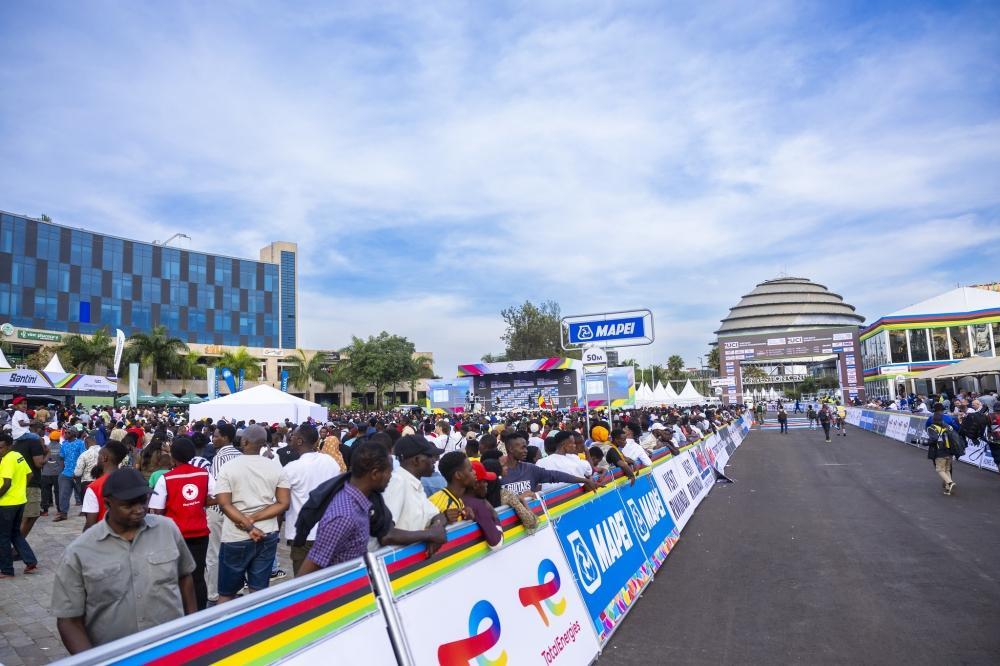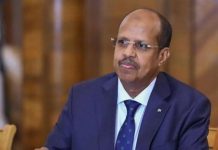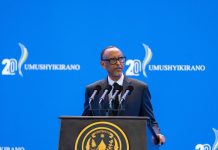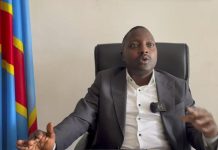Africa-Press – Rwanda. In an unprecedented move, 50 journalists from 17 media outlets in 11 countries, mostly European, teamed up on an alleged $2 million joint project to ‘investigate’ just one country: Rwanda,” Ugandan journalist Charles Onyango-Obbo posted on X, on May 30, 2024. He added that this was “likely the first such coordinated global media effort against a single country, particularly an African one, at this scale.”
At the time, Rwanda was under a coordinated media onslaught designed to cast it as a pariah state. But like earlier attempts, that one also failed to achieve its aim.
More than a year later, the country is hosting the 2025 UCI Road World Championships, the first ever on African soil.
Right on cue, some Western commentators in the media, academia, and the human rights industry, echoed by their African fifth column, are raging about what they call Rwanda’s “sportswashing.” According to them, an authoritarian regime accused of war crimes in DR Congo is being allowed to launder its image in the eyes of the international community. In their view, Rwanda was never supposed to emerge unscathed from their smear campaigns and still go on to host global events. What is even more infuriating, Rwandans now have an opportunity to flip Western media infrastructure on its head and tell a different story from the one we have grown accustomed to on those platforms. How could this be allowed to happen? the critics ask.
The answer seems obvious: Rwanda’s hard work and progress have once again proven louder than their smears.
In any propaganda war, Rwanda, and any other African country for that matter, can only fight asymmetrically. Take the confrontation with DR Congo. Kigali is not simply battling Kinshasa’s messaging; it is facing a regime propped up by Western legacy media that uncritically recycle anti-Rwanda claims from self-styled human rights organisations conducting “investigations” by phone. Meanwhile, these same outlets gloss over Kinshasa’s military alliance with remnants of Rwandan genocidaires (FDLR), its arming of brutal Wazalendo militias that commit atrocities often on camera, and the endless corruption scandals within the Congolese political elite.
Waging a communication war against such a powerful system with the goal of winning is pointless, given its grip on global public opinion. This is a reality Russia’s president Vladimir Putin once pointed out. In a sense, Rwanda’s critics agree with Putin. They know their propaganda networks are well-oiled and tightly integrated, still able to shape much of global opinion while drowning out dissenting voices through sheer repetition. They know they can write or say almost any lie about an African country and still emerge with their reputations intact.
Granted, social media platforms are changing the rules of engagement and giving small players a chance to get their message across, but when it comes to DR Congo, the influence of Western legacy media, combined with Congolese manpower on these platforms and Kinshasa’s lavish spending on propaganda, ensures that the noise is bound to drown out the facts.
So, what can Rwanda do beyond stating the facts, backed by evidence, whether about its liberation journey, its conflict with DR Congo, or the undeniable failures of the Congolese state?
Hard work and progress are what keep Rwanda moving forward: strengthening its security, building the infrastructure to drive economic development, developing skilled, disciplined, and experienced manpower across all sectors, pursuing smart diplomacy, and more. This approach has repeatedly delivered crushing blows to the critics: despite their efforts, Rwanda remains the continent’s most exciting story. So, when Western countries or organizations plan events and turn to Africa, Rwanda often emerges as the logical choice. Its quiet, consistent work speaks for itself. It is a reliable partner.
A similar phenomenon occurs when Western countries want to showcase the positive impact of their development aid. Rwanda is the ideal destination, as their money is used for its intended purpose without fail. When startups seek a ground for testing innovative tools or business models, Rwanda welcomes them. DR Congo may be endowed with more minerals, but Rwanda is where the refineries have been built, and neither the US nor the EU can overlook the potential of this strategic investment. When African nations such as Mozambique need a security partner, Rwanda steps in. The unintended consequence of these achievements is that Rwanda makes the news in a positive light, countering the negative image crafted around it.
In other words, it is not that Rwanda seeks to whitewash the image its critics try to tarnish; it is that its achievements act as a natural shield against the tarnishing.
The conundrum for Western media is this: Can they ignore the country’s groundbreaking accomplishments without missing out on stories that captivate and inspire African audiences? Most of the time, their way out of this dilemma is to acknowledge Rwanda’s successes while tacking on the usual qualifier: “At what cost? In desperation, they warn Africans against emulating a country that refuses to bow to Western dictates, insisting that Rwanda’s progress comes at too high a price, and that behind it lies a dark underbelly—a hidden secret waiting to be exposed.
Rwanda’s response to this malicious campaign is telling: Visit our country and form your own opinion about our journey.
Then comes the most absurd part: those who claim Rwanda is a horrible place, supposedly the “North Korea of Africa”, oppose the Visit Rwanda campaign and any event promoting the country as a tourist destination.
Shouldn’t they be the first to encourage people to visit the country and witness for themselves the horrible things supposedly taking place there? I have yet to get an answer to this nagging question.
For More News And Analysis About Rwanda Follow Africa-Press






